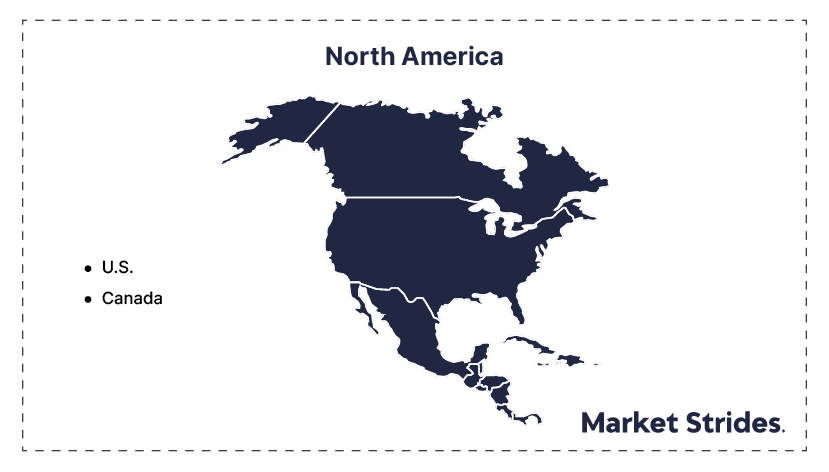The North America over-the-counter (OTC) drugs & dietary supplements market size is expected to grow at a CAGR of 6.15% during the forecast period (2025–2033). In the past few years, the surging consumer awareness regarding self-care and preventive healthcare has driven the demand for over-the-counter (OTC) drugs & dietary supplements. Consumers prefer easily accessible solutions to manage minor health issues, boosting the demand for over-the-counter (OTC) drugs & dietary supplements.
Over-the-counter (OTC) drugs are drugs available without a prescription, used to treat common ailments like pain, allergies, colds, and digestive issues. They are regulated by health authorities to assure safety and efficacy. Dietary supplements, including vitamins, minerals, herbal extracts, and amino acids, are taken to support overall health but are not intended to treat diseases. Unlike OTC drugs, they are regulated as food products rather than medicines, meaning their safety and effectiveness are not always scientifically proven. Consumers should use both over-the-counter (OTC) drugs & dietary supplements responsibly, following recommended dosages and consulting healthcare professionals when needed.
The rising geriatric population in this region is a key driver for the North America over-the-counter (OTC) drugs & dietary supplements market, as older adults require consistent management of chronic conditions like arthritis, cardiovascular diseases, and digestive disorders. According to the U.S. Census Bureau, by 2030, over 20% of the U.S. population will be aged 65 and older, surging the demand for OTC pain relievers, joint health supplements, and digestive aids.
This trend underscores the need for effective, accessible, and senior-friendly healthcare solutions.
The North America over-the-counter (OTC) drugs & dietary supplements market is significantly impacted by stringent regulatory requirements imposed by authorities such as the U.S. Food and Drug Administration (FDA) and Health Canada. These regulations mandate rigorous testing, labeling, and approval processes, increasing compliance costs for manufacturers. Frequent updates to guidelines, particularly for product reclassification and safety concerns, further complicate market entry for new players.
Additionally, the need for clinical validation and adverse effect monitoring adds time and expense to product development. Such strict regulatory oversight can delay the launch of new OTC drugs and dietary supplements, limiting innovation and reducing market growth potential for companies operating in this sector.
Advancements in product formulations are creating significant opportunities in the North American over-the-counter (OTC) drugs & dietary supplements market. Companies are developing novel delivery formats such as gummies, effervescent tablets, and fast-dissolving strips to improve consumer convenience and compliance.
These innovations cater to consumer demand for fast-acting, easy-to-consume products, making OTC drugs and dietary supplements more effective and appealing to a wider audience.
| ATTRIBUTES | DETAILS |
|---|---|
| Study Period | 2021-2033 |
| Historical Year | 2021-2024 |
| Forecast Period | 2025-2033 |
| By Product Type |
|
| By Dosage Form |
|
| By Therapeutic Area |
|
| By Distribution Channel |
|
| Regional Insights |
|
The OTC drugs segment is a key driver of the North American market, covering pain relievers, cough & cold medicines, gastrointestinal treatments, and dermatological solutions. Consumers prefer OTC medications for minor ailments due to convenience and cost savings over prescription drugs. Regulatory approvals for Rx-to-OTC switches and increasing self-medication trends further boost market growth. Additionally, the rising adoption of online pharmacies enhances accessibility, accelerating the segment’s expansion.
The tablets and capsules segment dominates the North American market due to its ease of administration, accurate dosage, and extended shelf life. Tablets are widely preferred for pain relief, cold & flu, and digestive health, while capsules are common in dietary supplements. The growing demand for multivitamins and herbal supplements further boosts this segment, supported by innovations in extended-release and chewable formulations.
The pain management segment holds a significant share in the over-the-counter (OTC) drugs & dietary supplements market due to the high prevalence of headaches, arthritis, muscle pain, and back pain. Consumers rely on OTC analgesics like ibuprofen, acetaminophen, and aspirin for immediate relief. The aging population and increasing cases of chronic pain conditions further fuel demand. Additionally, innovative drug formulations, including extended-release tablets and topical pain relievers, enhance consumer convenience and efficacy.
Retail pharmacies serve as a primary distribution channel for over-the-counter (OTC) drugs & dietary supplements, offering direct consumer access and pharmacist consultation. Major retail chains like CVS, Walgreens, and Walmart significantly drive market growth. Consumers prefer retail pharmacies for their reliability, immediate product availability, and promotional offers. Additionally, the increasing availability of private-label OTC products in pharmacies enhances affordability, contributing to the segment’s continued expansion.
The U.S. dominates the North American OTC market, driven by a robust consumer inclination towards self-medication and preventive healthcare. The widespread availability of OTC products across various retail channels, including pharmacies, supermarkets, and online platforms, has significantly contributed to market expansion.
In Canada, the OTC drugs and dietary supplements market is also witnessing growth, albeit at a comparatively moderate pace. The country's stringent regulatory framework ensures the safety and efficacy of OTC products, fostering consumer trust. Health Canada's Natural and Non-prescription Health Products Directorate (NNHPD) oversees the approval and monitoring of these products, maintaining high standards. Retailers like Shoppers Drug Mart have expanded their natural health product offerings to meet this growing demand.
Mexico represents a burgeoning market for OTC drugs and dietary supplements, driven by surging health awareness and a growing middle-class population. The country's regulatory body, the Federal Commission for Protection against Sanitary Risk (COFEPRIS), has been working towards streamlining the approval process for OTC products, encouraging market entry. Local pharmaceutical companies, such as Genomma Lab, have capitalized on this trend by offering an extensive range of OTC medications and supplements, making healthcare more accessible to the general population.
Thus, the North American OTC drugs and dietary supplements market exhibits robust growth, influenced by factors such as consumer health trends, regulatory environments, and the rising prevalence of chronic diseases. Companies operating in this space must navigate these dynamics to capitalize on emerging opportunities and address potential challenges.

Request Table of Contents (TOC), Please Fill below form



